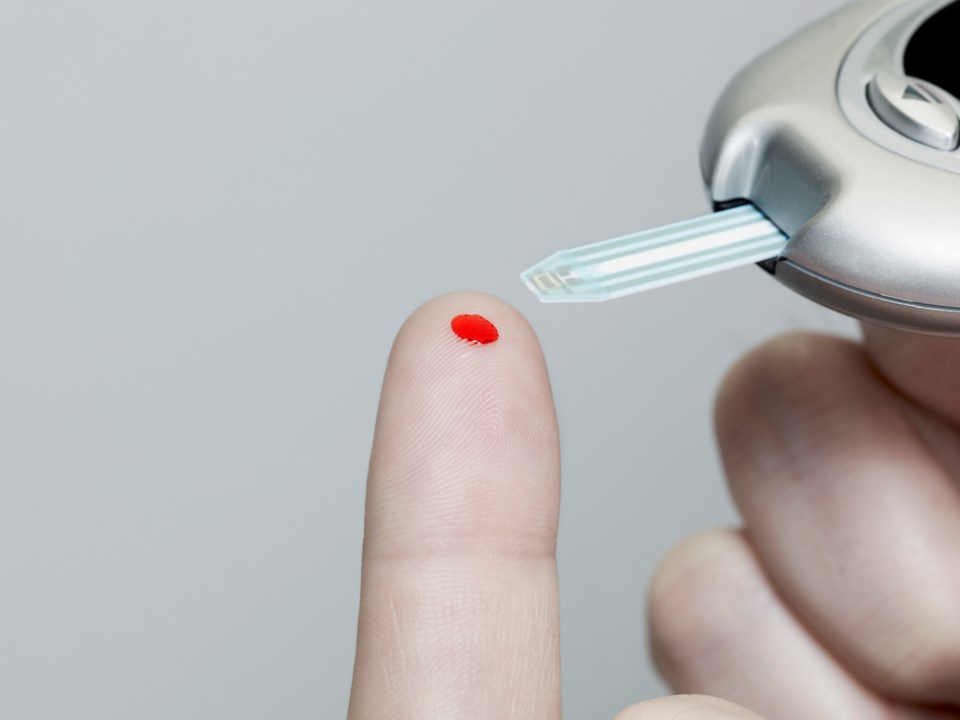The Boulder County Area Agency on Aging will kick off the new year with a new virtual wellness class, in English and Spanish, for those living with diabetes.
This free six-week diabetes self-management program will be offered for adults 60 and older.
The class is part of the county’s Healthier Living Diabetes program. The program created at Stanford University supports individuals living with diabetes and helps them cope with the daily challenges and ongoing concerns related to the illness, said Wellness Services coordinator Nina Christensen. It includes ways to improve participants’ abilities to cope with pain, fatigue and stress as well as develop skills to manage symptoms, she said.
“One reason the class is really great is that it offers the skills and information with the class to help them learn how to apply the knowledge and become experts in their own health,” Christensen said. “It also offers easy ways to help (people) manage their symptoms ...through diet and physical activity, among other things.”
The program aims to provide the necessary tools for people to not only become more effective at managing their own care, but also support the care of loved ones and peers, Christensen said.
More than 34 million adults in the U.S. were identified as having diabetes between 2013 and 2016, totalling 13% of all adults, according to the 2020 National Diabetes Statistics Report by the Centers for Disease Control. The prevalence of diabetes is even higher for adults 65 or older, totalling close to 27% of the older adult population, according to the CDC.
In Boulder County, 7.6% of the adult population was identified as having sought care for either Type 1 or 2 diabetes or a diabetes-related diagnosis between 2016 and 2017, according to the Colorado Health Observation Regional Data Service Diabetes Prevalence report.
Some racial and ethnic groups are more likely to develop prediabetes and Type 2 diabetes, according to the CDC, especially Hispanics and Latinos. Hipanic adults are 1.7 times more likely to be diagnosed with diabetes, 2.6 times more likely to be hospitalized for treatment of renal disease related to diabetes, and 1.4 times more likely to die from diabetes than non-Hispanic whites, according to the U.S. Department of Health and Human Services Office of Minority Health.
“We know diabetes affects the Hispanic community at a higher rate, and we want to offer this resource in Spanish so everybody is getting the same information and support when trying to lead healthier lives,” Christensen said.
The classes also are designed to share information about how to monitor blood sugar and manage medications, which ultimately can help save money and time, she said.
Patty Davis, a Longmont resident and participant in a recent chronic illness self-management class, said she found the ability to connect with other people struggling with health issues one of the most valuable aspects of this model of health education.
“When you go to the doctor, you don't get as much information. They can suggest some literature you can read but I think it’s important for people to get together and talk about their issues and for people to give ideas to each other,” she said.
Having suffered a heart attack and going through surgery over a year ago, Davis said learning to manage their health can come in handy not just for individuals but also for others in their circles.
“When you are sick it's a very lonely process if you don't have other people to talk to, so it’s important to have a network and have people who have the same health problems to give each other good ideas on how to manage illness,” she said. “A lot of people have misinformation so this is a good way to get something solid.”
The English-language class will launch on Thursday and participants will meet weekly via Zoom from 1 p.m. to 3:30 p.m. Thursdays. The Spanish-language program will start on Jan. 26 and will meet via phone from 1 to 2 p.m. Tuesdays.
Participants in both groups will receive educational materials to guide the remote sessions and work done independently at home, Christensen said. There are still spots available for people interested in joining either of the groups.
To register for the diabetes self-management program, click here, call 303-441-3774 or send an email to [email protected]. For more information about other wellness programs from the Area Agency on Aging of Boulder County, click here.


